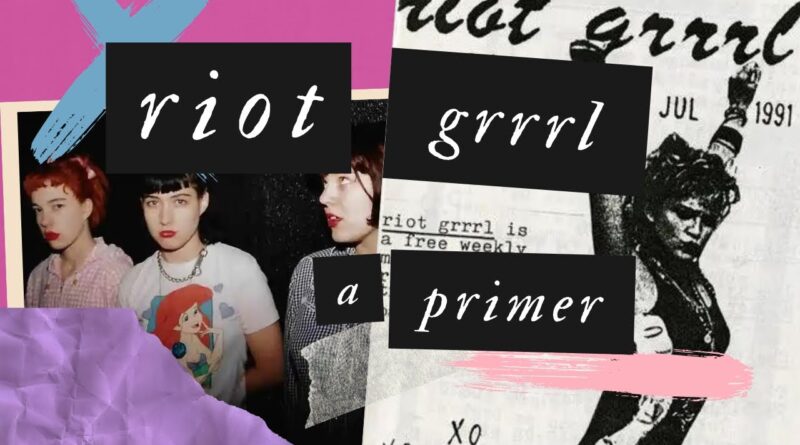Riot Grrrl
In the early 1990s, a powerful feminist movement emerged from the punk rock scene, challenging societal norms, and advocating for gender equality with a raw, unapologetic attitude. This movement, known as Riot Grrrl, ignited a cultural revolution that resonated far beyond its origins. From its roots in Washington, D.C. and the Pacific Northwest, Riot Grrrl spread like wildfire, inspiring countless individuals to raise their voices against oppression and injustice. This article delves into the history, ideology, impact, and legacy of Riot Grrrl, exploring how it continues to shape contemporary feminism and activism.
Table of Contents
ToggleOrigins and Ideology:
Riot Grrrl was more than just a musical genre; it was a multifaceted movement encompassing music, zines, activism, and community-building. Emerging in the early 1990s, Riot Grrrl was a response to the male-dominated punk scene and the pervasive sexism within both the music industry and society at large. Bands like Bikini Kill, Bratmobile, and Sleater-Kinney became synonymous with Riot Grrrl, using their music as a platform to address issues such as sexual assault, body image, and reproductive rights.
At its core, Riot Grrrl embraced feminist principles of empowerment, self-expression, and solidarity. Rejecting the notion of passive victimhood, Riot Grrrl encouraged women to reclaim their voices and assert their agency in a patriarchal world. The movement emphasized DIY (do-it-yourself) ethics, encouraging individuals to create their own art, music, and literature rather than waiting for mainstream validation.
Activism and Impact:
Riot Grrrl was not confined to concert venues and underground zine networks; it was a catalyst for grassroots activism and social change. From organizing protests against sexual violence to establishing women’s shelters and resource centers, Riot Grrrls were at the forefront of feminist activism in the 1990s. Their confrontational approach challenged the status quo, sparking conversations about misogyny, homophobia, and racism within punk and alternative communities.
One of Riot Grrrl’s most enduring legacies is its emphasis on inclusivity and intersectionality. While initially centered on the experiences of white, middle-class women, Riot Grrrl evolved to incorporate perspectives from LGBTQ+, BIPOC (Black, Indigenous, and People of Color), and marginalized communities. This intersectional approach broadened the movement’s reach and strengthened its impact, highlighting the interconnectedness of various forms of oppression.
Legacy and Contemporary Relevance:
Though Riot Grrrl as a formal movement waned by the late 1990s, its influence persists in contemporary feminist discourse and activism. The ethos of Riot Grrrl continues to inspire artists, musicians, and activists who challenge entrenched power structures and advocate for social justice. Riot Grrrl’s DIY ethos laid the groundwork for the independent, grassroots movements that proliferate in the digital age, from online communities to social media activism.
Moreover, Riot Grrrl’s emphasis on self-representation and storytelling paved the way for contemporary feminist initiatives such as the #MeToo movement and intersectional feminism. By centering the voices and experiences of those traditionally marginalized and silenced, Riot Grrrl helped redefine feminism as a dynamic, inclusive movement that embraces diversity and intersectionality.
Conclusion:
Riot Grrrl may have emerged from the underground punk scene of the 1990s, but its impact reverberates through the decades, resonating with a new generation of feminists and activists. By challenging patriarchal norms, amplifying marginalized voices, and fostering a sense of community and solidarity, Riot Grrrl continues to shape the cultural landscape and inspire resistance against oppression in all its forms. As we navigate the complexities of the 21st century, the spirit of Riot Grrrl reminds us that our voices are powerful, our stories matter, and together, we can dismantle systems of injustice and build a more equitable world.
